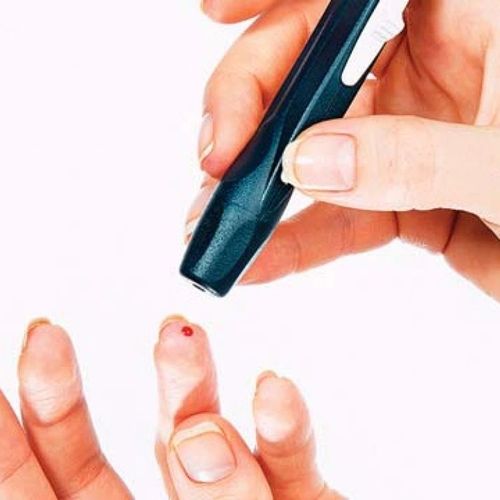People with type 2 diabetes have a lot of balls to keep in the air, medically speaking.
They need to, of course, keep their blood sugar in check, get regular eye screenings and monitor their feet, which often can suffer from nerve damage.
Now new research may add another item to that already-long checklist.
It suggests that people with type 2 diabetes should start getting colonoscopies earlier and, perhaps, get them more frequently.
Here's why...
Type 2 Diabetics have "Older" Colons
Researchers from Washington University in St. Louis reviewed colonoscopy records of male and female patients over a six-year span, comparing the incidence of precancerous polyps in three groups-those ages 40 to 49 with type 2 diabetes... those ages 40 to 49 without type 2 diabetes... and those ages 50 to 59 without type 2 diabetes.
Their first finding was expected, since age increases the risk for precancerous polyps. Nondiabetics in their 50s had a much higher rate of precancerous polyps (32%) than nondiabetics in their 40s (14%).
But their second finding was alarming. Diabetics in their 40s had nearly the same rate of precancerous polyps (30%) as nondiabetics in their 50s (again, 32%). And this was after individual cancer risk factors-such as gender, race, obesity, smoking, high cholesterol and alcohol use-were taken into account.
"It's almost as if the colons of diabetics are 10 years older," study author Hongha Vu James, MD, formerly clinical gastroenterology fellow at the university, said. It's believed that the culprit is a high level of insulin in type 2 diabetics, since insulin is thought to promote cell growth in the colon, she said.
Should Screening guidelines change?
Current guidelines from the American Cancer Society (ACS) suggest that colorectal cancer screenings should begin at age 50 for people at average risk for colon cancer. ACS advises those at high risk (anyone with inflammatory bowel disease, a personal history of colorectal cancer or a family history of colorectal cancer) to get screened even earlier (the age varies by risk factor). In addition, the site for the American College of Gastroenterology says, "Recent evidence suggests that African-Americans should begin screening earlier at the age of 45."
What about people with type 2 diabetes? The American Diabetes Association, while acknowledging that type 2 diabetes is linked with a higher risk for colorectal and other cancers, urges diabetics to reduce lifestyle-related cancer risk factors but doesn't deviate from the "begin screening at age 50" recommendation for those at average risk.
Dr. Vu-James, however, is hoping that her research -and future studies that replicate it will change that. Her study suggests that people with type 2 diabetes should consider getting their first colorectal cancer screening earlier than age 50.
In her view, doctors should be open to discussing the idea of earlier colorectal cancer screenings with diabetic patients based on their overall risk factors, and it might help to bring a copy of this article with you if you want to broach the idea with your physician. Unfortunately, if you have type 2 diabetes and you want to get a colorectal cancer screening before the age of 50 but you're considered to be at "average risk,'' according to the current guidelines, it's unlikely that insurance will cover it, said Dr. Vu-James, and a colonoscopy can cost around $1,200 or more. If more research confirms Dr. Vu-James' findings and screening guidelines change, colonoscopies are more likely to be covered in the future.
If you have type 2 diabetes and are over the age of 50 and you've already started getting colorectal cancer screenings, Dr. Vu-James said that there is no data yet on whether or not more frequent screenings are necessary, but if you're concerned, talk to your doctor.
Also: This increased risk for colorectal cancer does not apply to people of any age with type 1 diabetes, said Dr. Vu-James, because type 1 is caused by a lack of insulin.
